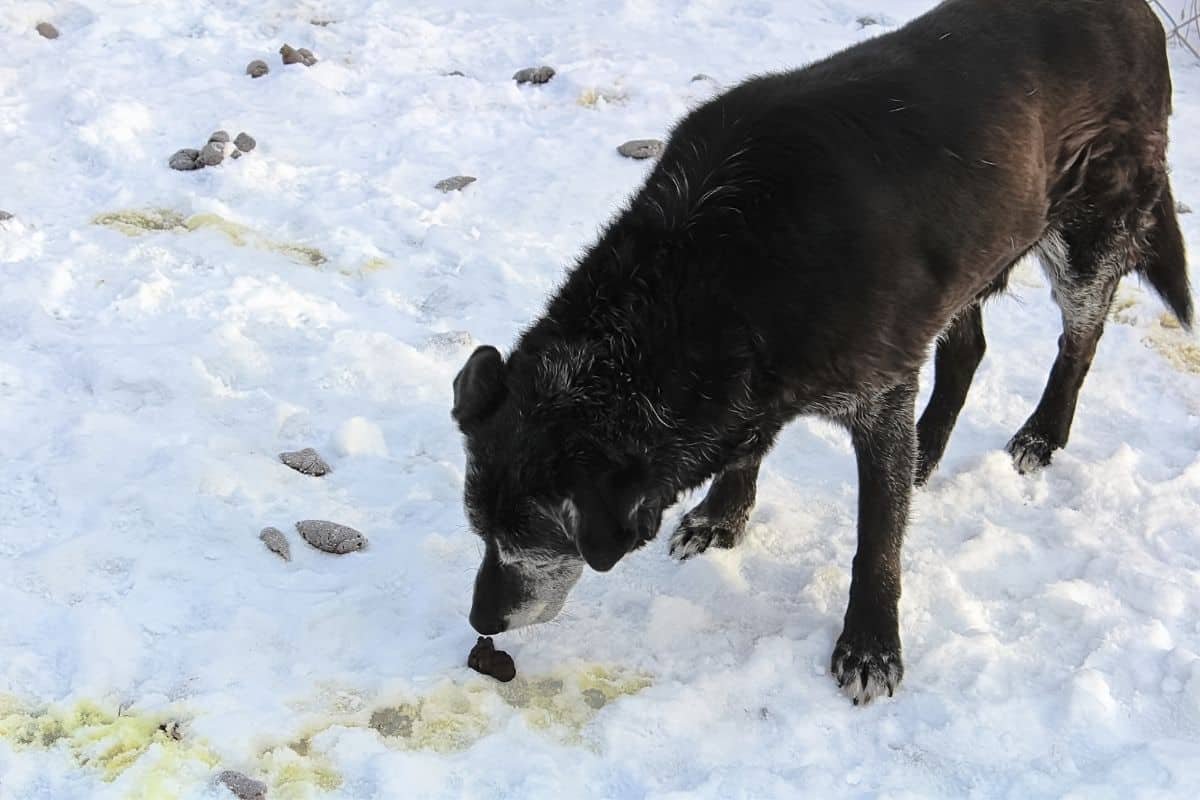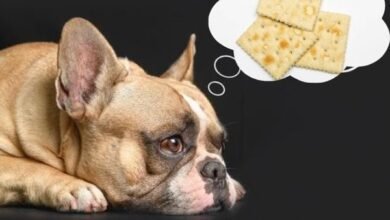
If your dog eats poop, you’re likely wondering how to stop a dog from eating poop once and for all. This behavior, known as coprophagia, is common, though unpleasant. While it may seem like a strange and gross habit, it is something that many dogs engage in, and fortunately, it is treatable. Understanding the common causes behind this behavior can help you determine the best strategies to stop your dog from eating poop. In this article, we will explore the most common reasons why dogs engage in coprophagia and provide remedies and solutions to help break this habit.
Why Do Dogs Eat Poop?
Before we jump into solutions for how to stop a dog from eating poop, it’s important to first understand why dogs engage in this behavior. There are several factors that contribute to poop-eating, and by addressing the root cause, you can more effectively curb the behavior.
1. Instinctual Behavior
- In the wild, dogs’ ancestors, such as wolves and wild dogs, often consumed feces as a way to keep their den clean and avoid attracting predators. This behavior, while less necessary in domesticated dogs, is still seen in some dogs today, particularly puppies, who may instinctively explore their environment by eating feces.
In these cases, it’s not harmful, but it’s certainly undesirable. Puppies may grow out of the habit as they get older and learn what is appropriate to consume, but it’s still important to correct it early.
2. Nutritional Deficiencies
- One of the most common reasons dogs eat feces is because they are lacking essential nutrients in their diet. A dog may eat poop to try and obtain the vitamins, minerals, or digestive enzymes that are missing from their food. This is especially common in dogs that are fed lower-quality or imbalanced diets.
If your dog is eating feces to compensate for a deficiency, providing a more nutritionally complete, high-quality diet can help eliminate this behavior. You may want to consult with your vet to determine if your dog has any specific deficiencies and how to address them.
3. Boredom or Lack of Mental Stimulation
- Just like humans, dogs can become bored if they don’t have enough to do. If your dog spends a lot of time alone or is not getting enough physical or mental stimulation, they may turn to feces-eating as a way to entertain themselves or relieve anxiety.
Dogs that lack sufficient exercise, play, or interaction are more likely to engage in undesirable behaviors, including coprophagia. If your dog is left alone for long periods, this could be a contributing factor to their poop-eating habit.
4. Medical Conditions
- In some cases, a medical condition could be causing your dog to eat poop. Parasites, gastrointestinal disorders, and malabsorption diseases can affect your dog’s ability to absorb nutrients, leading them to seek out feces. If your dog continues to eat feces despite dietary changes and behavioral adjustments, it’s important to consult with a veterinarian to rule out any underlying health issues.
5. Attention-Seeking Behavior
- Some dogs eat poop to grab their owner’s attention. If they notice that eating feces leads to a strong reaction from you—whether positive or negative—this behavior may continue. In these cases, dogs may use feces-eating as a way to get attention or reinforce a pattern of behavior.
How to Stop a Dog From Eating Poop: Remedies and Solutions
Now that we’ve covered the common reasons behind coprophagia, let’s explore how to stop a dog from eating poop. There are several strategies you can implement to curb this behavior.
1. Supervise and Clean Up Immediately
- The simplest solution to how to stop a dog from eating poop is to prevent access to feces. This requires vigilance during bathroom breaks. Make sure to supervise your dog when they go outside and immediately clean up any poop they leave behind. If your dog goes to the bathroom inside, be sure to clean up immediately to prevent them from eating it.
Supervising bathroom breaks and cleaning up waste right away will eliminate the opportunity for your dog to engage in this behavior.
2. Feed a Balanced, High-Quality Diet
- One of the best ways to prevent feces-eating is to ensure your dog is getting the nutrients they need from a balanced diet. If your dog is eating poop due to nutritional deficiencies, a high-quality, complete dog food can address the issue. Look for food that is rich in high-quality protein, fiber, omega fatty acids, and vitamins.
You may also want to consider supplementing your dog’s diet with digestive enzymes or fiber if your veterinarian recommends it.
3. Use Taste Deterrents
- To make poop less appealing, you can try using taste deterrents. Products like For-Bid are designed to be sprinkled on your dog’s food and make their stool taste unpleasant, discouraging them from eating it. Over time, this can help break the habit.
These products are most effective when used in conjunction with other strategies, such as positive reinforcement and training.
4. Increase Physical and Mental Stimulation
- If your dog is eating poop due to boredom or anxiety, providing more physical exercise and mental stimulation can help redirect their energy and focus. Dogs who get sufficient exercise are less likely to engage in negative behaviors, such as eating feces.
Take your dog for regular walks, runs, or hikes, and make sure they have access to toys and activities that engage their brain. Puzzle toys, interactive games, and training exercises are great ways to keep your dog mentally stimulated and reduce the urge to eat poop.
5. Training and Positive Reinforcement
Training your dog to leave it or not when they approach feces can be an effective way to stop the behavior. Use positive reinforcement to reward your dog when they successfully ignore feces. For example, when your dog walks past poop without trying to eat it, reward them with praise or a treat.
Here’s how to use positive reinforcement for poop-eating prevention:
- Command your dog to leave it when they approach feces.
- Reward them immediately with praise or a treat when they obey.
- Be consistent with your commands and rewards.
By reinforcing positive behaviors and ignoring the undesirable ones, your dog will learn that avoiding poop leads to positive outcomes.
6. Provide More Socialization and Attention
- If your dog is eating poop as a way to get attention or cope with separation anxiety, it’s important to address the root cause. Make sure your dog is getting enough attention, socialization, and time with you. Leaving your dog alone for long periods may increase anxiety and lead to undesirable behaviors.
Consider enrolling your dog in obedience classes, dog playgroups, or engaging in activities that allow them to interact with other dogs. This can help alleviate loneliness and reduce stress, which may help eliminate the poop-eating behavior.
7. Consult a Veterinarian
If your dog’s coprophagia persists despite your best efforts, it’s important to consult a veterinarian. A vet can rule out any medical conditions, such as parasites or gastrointestinal issues, that may be contributing to the behavior. Your veterinarian can also offer advice on dietary changes or recommend treatments for underlying health problems.
Conclusion
How to stop a dog from eating poop requires patience, consistency, and a holistic approach. Whether the behavior is driven by instinct, nutritional deficiencies, boredom, anxiety, or medical issues, understanding the cause is crucial for finding the most effective solution. By implementing the remedies mentioned above—such as cleaning up immediately, improving your dog’s diet, using deterrents, increasing stimulation, and consistent training—you can break the habit and help your dog live a healthier, happier life.
If needed, don’t hesitate to seek professional guidance from your veterinarian to ensure your dog’s well-being. With the right strategies, you can put an end to coprophagia and enjoy a cleaner, more positive relationship with your dog.



